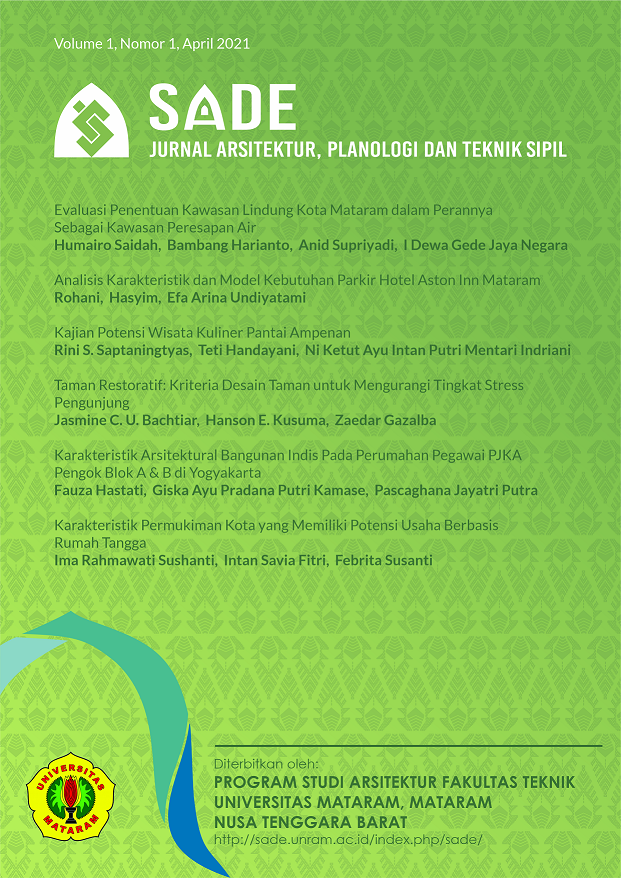Taman Restoratif: Kriteria Desain Taman untuk Mengurangi Tingkat Stress Pengunjung
DOI:
https://doi.org/10.29303/sade.v1i1.7Kata Kunci:
tree density, enclosure, tree arrangement, tree scale, urban parkAbstrak
Urban parks are public recreational facilities that can provide many benefits, reducing stress from fatigue. However, some urban parks are not frequently visited because it feels very dark inside so that many parks are unkempt and empty of visitors. This study aims to determine how the comparison of park visitors' perceptions at different levels of closure based on the sense of security and restoration they received. This research is experimental in nature, so respondents are asked to rate several edited photos to determine the optimal combination of closure. Data was collected by distributing questionnaires online for two weeks (N = 272). Furthermore, the data were processed through the ANOVA test to see which combination of enclosure was rated the highest and the lowest based on perceived savety and restoration. The results show that visitors’ perceived safety can be achieved by applying a combination of closeness 8 (high density, far position, medium scale (6 meters)) and 9 (medium density, close position, high scale (9 meters)), while visitors’ perceived restoration tends to the same and not tied to different combinations of closure. The implementation of this study is how to design the tree enclosure in urban parks to increase the participation of residents visiting the park. Urban parks that are frequently visited will be sustainable in future, so maintaining parks can be started from designing enclosure of parks.
Unduhan
Diterbitkan
Cara Mengutip
Lisensi
Hak Cipta (c) 2021 Jasmine C. U. Bachtiar, Hanson E. Kusuma, Zaedar Gazalba

Artikel ini berlisensiCreative Commons Attribution-ShareAlike 4.0 International License.
Hak cipta dan lisensi setiap artikel yang diterbitkan di situs jurnal dipegang penuh oleh penulis artikel dan tidak boleh disalahgunakan, dilipatgandakan, serta dipublikasikan diluar situs SADE untuk kepentingan tertentu tanpa persetujuan dari penulis.















